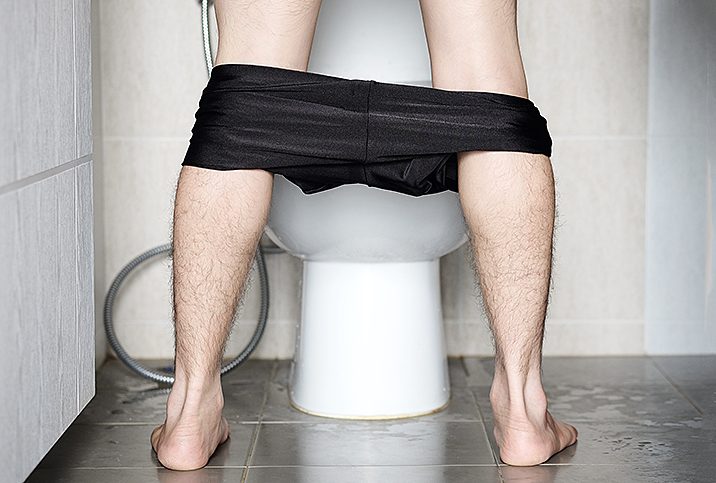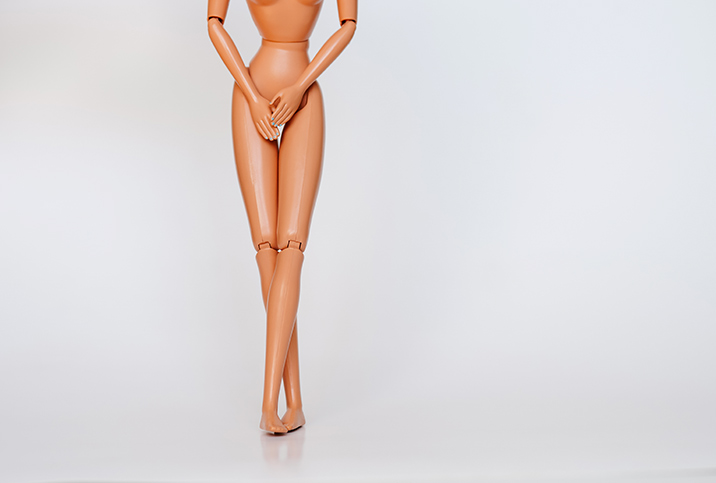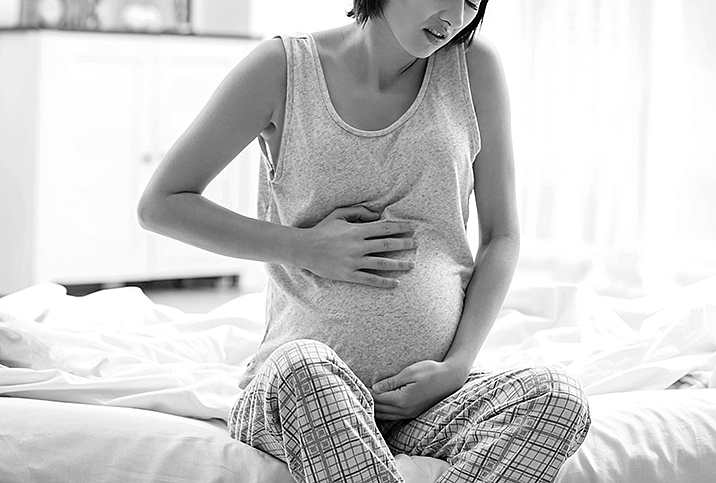Why You Should Always Pee After Sex (Yes, Even Men)

While your sex-ed teacher probably didn’t pass along this pearl of wisdom, there’s an unwritten rule that the first thing you do after sex is pee.
It’s not the sexiest move, but it can help you avoid painful, burning urinary tract infections (UTIs), which are even less sexy and happen to be most commonly associated with getting laid. That’s because you aren’t just swapping fluids with your partner, you’re sharing bacteria, too.
“Sexual activity often involves friction, fluids and body parts all moving around the genital area,” said Lyndsay Mercier, Ph.D., a sexologist and sexual health educator. “All of this contact can very easily move bacteria—from the anus, mouth, fingers, sex toys, etc.—toward the urethra.”
Your urethra is the little passageway that transports urine out of your body, and if bacteria makes its way inside that tube, it can lead to an infection. Most infections occur in the urethra or the bladder, but it is possible for bacteria to reach the ureters (which connect the kidneys to the bladder), kidneys and prostate.
Why is peeing necessary post-sex?
Going to the bathroom after you get off is an easy and effective way of flushing any bacteria from your insides. “Peeing after sexual activity helps clear the urethra of any bacteria that may have started to make its way inside,” said Mercier. (But, just as a reminder, it will not prevent sexually transmitted infections nor will it prevent pregnancy.)
This is especially important for women, who have a 50 to 60 percent chance of getting at least one urinary tract infection in their lifetime, research in the American Journal of Medicine determined. “People with vaginas have a much shorter distance between their urethra and their anus, so it’s that much easier for bacteria to travel up that passageway,” said Mercier.
That doesn’t mean men are immune to UTIs. Yes, they are at less of a risk—in fact, women get UTIs up to 30 times more than men—simply because men’s urethras are much longer than those of people who have a vagina, so it is more difficult for bacteria to make its way through to the bladder without disruption, said Mercier. But “penis-havers should still make a habit of urinating after sexual activity just to be on the safe side,” she added. “It makes no difference what gender someone’s sexual partner is; any sexual activity involving genitals has the potential to introduce bacteria to the urethra.”
How long should you wait to pee after sex?
You don’t have to jump out of bed to hit the bathroom the second your partner comes—there’s no strict rule as to how soon after sex you should pee, said Mercier. “However, the sooner you pee, the better. If you wait too long—for example, if you fall asleep and don’t urinate until morning—the bacteria will have had a greater opportunity to travel further into your urethra,” she explained. “Just to be on the safe side, try to pee within 30 minutes or so after sex.”
Even if you don’t have to go, try anyway! Sometimes, just sitting on the toilet seat or standing in front of it will prompt at least a little something, and that’s better than not peeing at all, said Mercier. “You really only need enough to clear out the urethra, which doesn’t take much,” she said. “If that still doesn’t work, try again in 15 or 20 minutes.”
Keep in mind that peeing after sex is by no means a guarantee that you won’t end up with a UTI—it only helps to prevent them. “Some people are especially susceptible to UTIs and no amount of post-sex peeing will prevent it, and others might never get one—even if they never pee after sex. Everyone is different!” said Mercier. But no matter who you are, a quick bathroom break certainly can’t hurt.


















